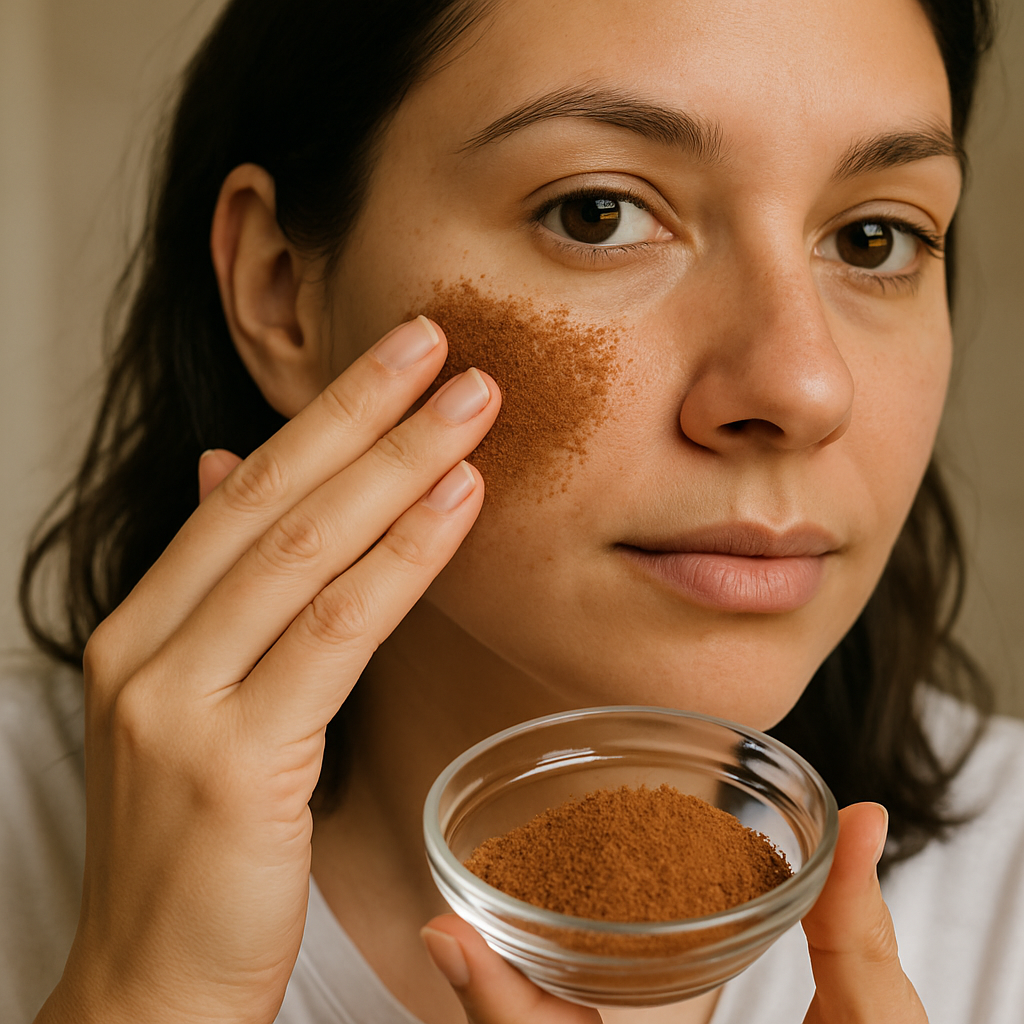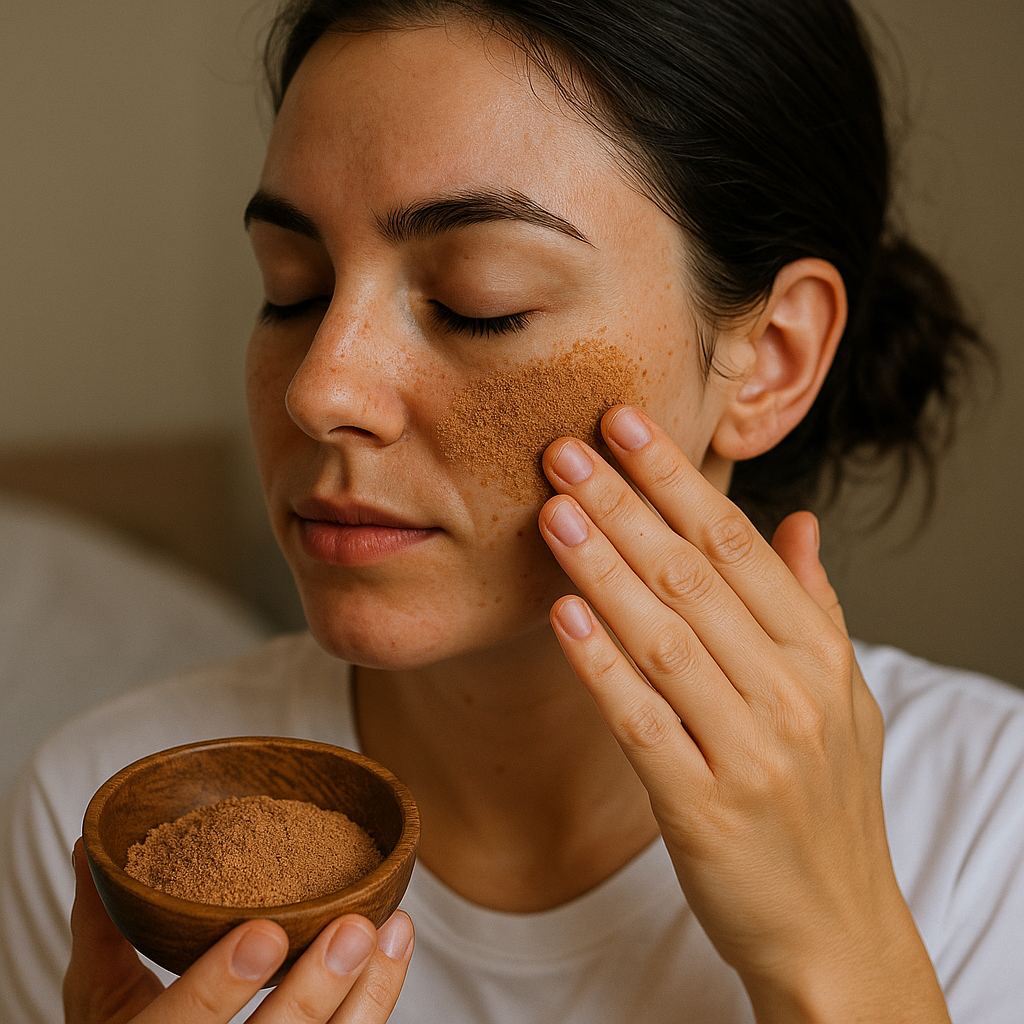Ask Ayurvedic doctor a question and get a consultation online on the problem of your concern in a free or paid mode. More than 2,000 experienced doctors work and wait for your questions on our site and help users to solve their health problems every day.
How to Use Nutmeg Powder Effectively in Daily Life

Nutmeg, or jaiphal as it’s often called in India, has been treasured for centuries—not just as a spice, but as a remedy, a beauty booster, and even a natural sleep aid. If you’ve ever wondered how to use nutmeg powder in everyday life, you’ll be pleasantly surprised by the variety of ways it can add value to your routine. Whether you’re curious about nutmeg powder for skin, exploring nutmeg powder for face masks, or learning about its calming benefits before bed, this humble spice holds more power than most realize.
The best part? Nutmeg powder use is not complicated at all. From traditional Ayurveda to modern skincare hacks, the uses of nutmeg powder are vast and practical. In this article, we’ll dig deep into nutmeg powder uses for skin, health, and well-being. By the end, you’ll know exactly how to integrate this aromatic spice into your daily rituals — and maybe even discover a new favorite remedy along the way.
How to Use Nutmeg Powder in Ayurveda and Home Remedies
Nutmeg has long been considered a powerful herb in Ayurveda, where it’s respected for balancing the doshas and supporting digestion, sleep, and skin health. People often look up how to use nutmeg powder for sleep, and Ayurvedic texts actually recommend a small pinch of jaiphal mixed with warm milk to calm the mind and improve rest.
But that’s not the only use of nutmeg powder. In fact, it’s often used in tiny amounts to ease digestive discomfort, support liver function, and even sharpen concentration. Modern science is slowly catching up, confirming some of these traditional nutmeg powder uses with research pointing to antioxidants and anti-inflammatory compounds inside the spice.
Nutmeg Powder Use for Health and Wellness
When it comes to wellness, nutmeg powder use can be as simple as sprinkling a little on food or tea. Just a pinch (literally no more, as too much can be harmful) can help with bloating or indigestion. Some even add it into honey or herbal drinks as a tonic for energy.
If you’re wondering about uses of nutmeg powder for mental calm, you’ll be glad to know that it contains compounds that may have mild sedative effects. That’s why people across cultures recommend how to use nutmeg powder for sleep — just a little before bedtime can sometimes do wonders for restless nights.
Jaiphal Powder Uses in Traditional Practices
Across South Asia, the Middle East, and even in European folk medicine, jaiphal powder uses have been diverse. From charms against the evil eye to remedies for coughs, nutmeg has played a symbolic and medicinal role. While not every tradition is backed by science, the longevity of these practices suggests people felt genuine benefits.
One traditional recipe mixes jaiphal with ghee for stomach pain. Another popular one: nutmeg paste applied externally for relief from headaches. These older remedies reflect how deeply ingrained the use of nutmeg powder is in culture, not just cooking.

Don't wait or self medicate. Start chat with Doctor NOW
Nutmeg Powder for Skin Care
Now, let’s be honest. One of the most popular modern interests is nutmeg powder for skin. With social media buzzing about DIY face packs, people are asking: does it really work? The answer is—yes, it can, but with some caution. Nutmeg contains antibacterial and anti-inflammatory properties, which is why people experiment with nutmeg powder uses for skin like acne relief or natural exfoliation.
Nutmeg Powder for Skin Glow and Radiance
If your skin looks dull, nutmeg can give it a natural boost. Mixing it with honey or yogurt makes a quick mask that brightens the complexion. This is one of the simplest ways to try nutmeg powder uses for skin at home.
It doesn’t magically transform overnight, but over time, using nutmeg masks 1–2 times a week may help with overall skin glow. Just remember to patch-test — sensitive skin may not always react well, and overusing spice-based treatments can cause irritation.
How to Use Nutmeg Powder for Pigmentation and Dark Spots
Pigmentation is one of the most stubborn skin issues, and people often search for natural solutions before trying harsh chemicals. This is where nutmeg shines. Learning how to use nutmeg powder for pigmentation can be a game-changer if you want to lighten scars or dark patches gently.
A common method is to mix nutmeg with milk or aloe vera gel and apply it as a thin paste on the affected area. The antibacterial properties can reduce acne marks, while the mild exfoliation may fade pigmentation over time.
That said, patience is key. Unlike chemical peels that show immediate results, natural uses of nutmeg powder for pigmentation work gradually. Some people notice subtle changes after a few weeks, while others may take longer. And yes, results vary — it’s not a one-size-fits-all miracle.
Another tip: avoid applying nutmeg powder directly in large amounts. The spice is potent, and overdoing it can lead to redness or irritation. Always test a small patch first. (Honestly, this is where many folks go wrong — thinking more is better. But it’s not.)

Nutmeg Powder for Face Treatments
When it comes to DIY beauty, nutmeg powder for face treatments are among the most popular. And for good reason: this spice blends well with other kitchen staples to create quick, natural masks. Unlike store-bought creams with long ingredient lists, nutmeg masks are simple, affordable, and surprisingly effective when used correctly.
Homemade Face Masks with Nutmeg Powder
Here are a few easy recipes you can try:
-
Nutmeg + Honey Mask: Great for acne-prone skin. Honey soothes irritation, while nutmeg adds antibacterial strength. Leave it on for 10–15 minutes.
-
Nutmeg + Yogurt Pack: Yogurt gently exfoliates, while nutmeg works to even out tone. A perfect weekend mask for refreshment.
-
Nutmeg + Rose Water: A light mask for calming inflamed skin. Rose water balances, nutmeg fights bacteria. Apply for 10 minutes before rinsing off.
These recipes highlight the versatility of nutmeg powder use in skincare. However, don’t get carried away — twice a week is usually enough. Daily application can actually stress the skin (something many forget).
Nutmeg Powder Uses for Skin Brightening
One of the most searched-for beauty hacks is nutmeg powder uses for skin brightening. The idea isn’t just about making skin lighter but about giving it a healthy, radiant look.
When combined with lemon juice (in tiny amounts), nutmeg may help reduce dullness and give a refreshed glow. Some even say consistent use of nutmeg masks helped them look more “awake” and vibrant.
But here’s a small reality check: results can be subtle. If you’re expecting dramatic overnight changes, you might end up disapointed. Think of nutmeg more like a supportive ingredient in your skincare routine, not the entire solution.
Conclusion
Nutmeg, or jaiphal, is more than just a warm spice sitting in your kitchen. It’s a multi-purpose natural remedy with countless benefits. From Ayurveda remedies that show how to use nutmeg powder for sleep, to DIY masks that brighten the face, the uses of nutmeg powder reach far beyond flavoring desserts.
We’ve explored how to add it into your wellness routine, tried nutmeg powder for skin glow, checked out remedies for pigmentation, and even talked about old-school jaiphal powder uses in traditional practices. But the takeaway is simple: nutmeg works best in moderation. It’s powerful, effective, and yes, sometimes underestimated.
So next time you’re looking for a natural boost in skincare or need a calming night’s sleep, maybe open that spice jar and remember—nutmeg is way more than just another kitchen seasoning.
FAQs
Can I use nutmeg powder for face daily?
Not really recommended. While nutmeg powder for face treatments are useful, daily application can irritate the skin. 2–3 times a week is more than enough for masks. Overusing spice-based remedies can backfire, causing redness or sensitivity.
How to use nutmeg powder for sleep naturally?
One of the oldest remedies is to mix a pinch of nutmeg into warm milk before bed. Ayurveda has promoted this method for centuries. It’s simple, soothing, and many people swear by it. Just be careful not to overdo it — too much nutmeg can cause the opposite effect or mild side effects.
Can nutmeg powder cause side effects?
Yes, like anything strong, it can. Large quantities of nutmeg are toxic, so stick to very small, recommended amounts. On skin, it may cause irritation if applied too often or without patch-testing. Think of nutmeg as “less is more.” A little goes a long way.
Final Thoughts
At the end of the day, the uses of nutmeg powder are versatile, practical, and easy to include in everyday life. You can try nutmeg powder uses for skin, explore beauty masks, or test out age-old recipes for wellness and sleep. And the best part—it’s affordable and already sitting in most kitchens!
If you found this guide helpful, share it with friends who might also be curious about how to use nutmeg powder effectively. Natural remedies often spread by word of mouth, and sometimes the simplest tips make the biggest difference.
Start small, test what works for your body and skin, and enjoy the process. Nutmeg may not be a miracle cure, but it’s definitely one of those underrated treasures worth rediscovering.

